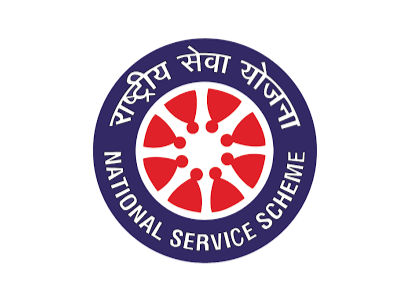- Home
- NSS / NCC - Details
INSTITUTE FOR ECUCATION
Introduction History of N.S.S: National Service Scheme (Under the Ministry of Youth Affairs and
Sports, Government of India and NSS cell, Higher and technical education, Govt. of Maharashtra.) has
been introduced at Arts, Science & Commerce College, Kolhar. Since 1999 as a part of the academic
program.
National Service Scheme (NSS) has been playing a vital role in enriching the souls and minds of the
students of the College since long time. The overall objective of the scheme is ‘Education and Service’ to
the community and by the community. It is a programme for students to regal the needs of the community,
when required. It also helps the students to communicate with the society. The students joining this scheme
develop many behavioral interactive skills. They visit the rural areas as volunteers during the camps
organized by the concerned college. The NSS volunteers take initiative in developing a Technocratic
Environment and also help the underprivileged people to develop themselves. The scheme promotes the
ability to present them in a better way. Thus the ultimate goal of the scheme is to strive to inculcate the
bond of patriotism, national integration, brotherhood, communal harmony among the volunteers
After independence the University Grants Commission, headed by S. Radhakrishnan, recommended the
introduction of voluntary National Service Scheme in academic institutions. This idea was again
considered by the Central Advisory Board of Education (CABE) at its meeting in January, 1950; after
examining the idea and the experiences of other countries in this field, the board recommended that
students and teachers should devote time to voluntary manual work. In the draft first Five-Year
Plan adopted by the government in 1952, the need for social and labor service by Indian students for one
year was stressed. In 1958 Jawaharlal Nehru, in a letter to the chief ministers, considered the idea of social
service as a prerequisite for graduation. He directed the Ministry of Education to formulate a suitable
scheme for the introduction of national service into academic institutions. In May 1969, a conference of
student representatives (of universities and institutions of higher education) convened by the Ministry of
Education and the University Grants Commission also unanimously agreed that a national-service scheme
could be an instrument for national integration. The details were soon worked out and orientation camp
was organized at Rajghat. This camp was concluded on 7 June 1969.KKGupta from DU was declared first
volunteer. The Planning Commission sanctioned an outlay of ₹5 crores for the NSS during the Fourth
Five-Year Plan, stipulating that the NSS be a pilot project in selected institutions and universities. On 24
September 1969, the then Union Education Minister V.K.R.V. Rao launched the NSS at 37 universities all
states. The scheme has been extended to all states and universities in the country, and also +2 level
institutes in many states.
- To understand the community in which they work
- To understand themselves in relation to their community
- To identify the needs and problems of the community and involve them in problem solving process
- To develop among themselves a sense of social and civic responsibility.
- To utilize their knowledge in finding practical solution to individual and community problems
- To develop competence required for group-living and sharing of responsibilities
- To acquire leadership qualities and democratic
- To gain skills in mobilizing community participation
- Cleaning
- A forestation
- Stage shows or a procession creating awareness of such issues as social problems, education and cleanliness
- Awareness Rallies
- Inviting doctors for health camps
- Community Survey
- an accomplished social leader
- an efficient administrator
- a person who understands human nature
Jharkhand
Email- omgeography@gmail.com
Mobile No- 9431353671








